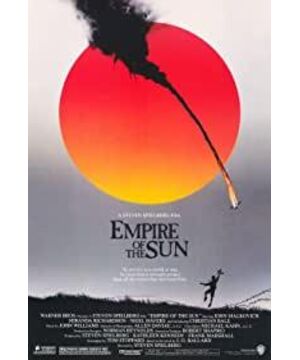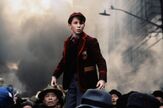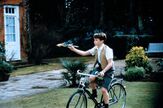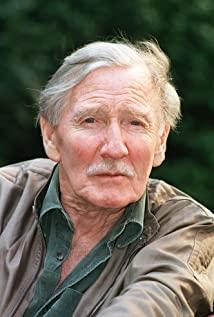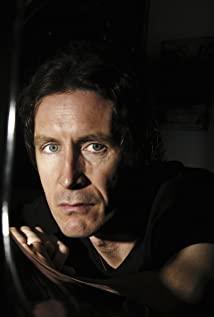The film is through the British boy Jim. During World War II, the Japanese army attacked Shanghai and the family fled on foot and was dispersed by the crowd, causing Jim to live in a Japanese concentration camp. Through the eyes of this child, the ups and downs of the concentration camp were swayed to the audience. Such movies are not uncommon, but such movies have been pushed out one after another here in Spielberg.
Although Jim is an Englishman, he was born in Shanghai; he is a fan of the military, and what is more, he is obsessed with the famous Japanese fighter Type 0 military aircraft; he lives in a wealthy life and does not know the hardships outside the door. The director's protagonist obviously seems incompatible with this gloomy battle, but he is the best witness. After he was separated, Shanghai fell. Facing the chaos in the center of Shanghai, he lost his parents and did not know where to go. This is where his life is still going. When he hid at home waiting for the arrival of his parents, he was anxious and ate all the food, and he was the only one. He went to and from Zhabei Concentration Camp and Suzhou Concentration Camp. When he saw the military discipline he was obsessed with appeared in front of him, he couldn't help but touch the spark-falling plane that was under repair, and gave the airmen a military gift he dreamed of. He accidentally met a Japanese male who was trained as an aviation reserve military service. He has never experienced maternal love and loves airplanes. They talked in short Japanese without racial hatred. At the end of World War II, the Japanese surrendered and the Japanese boy’s plane crashed. He climbed ashore with a saber waving and saw Jim standing there. He saw his face and smiled at him clearly, gave him mangoes, and wanted to stand up. When he used a saber to cut open this extremely precious mango, he was killed by accident by an American sailor who came. Jim pushed the American sailor into the river and drooped his chest and called him a bastard. He pressed the Japanese boy's chest for first aid and said, "I can save everyone." The camera flashed, Jim’s rescuer became himself dressed in expensive style, and the camera flashed again. The Japanese boy vomited blood and he died. The friendship Jim wanted to save died together with his own past.
He used neurotic language and said with his hands so thin that he was drawing something with his pen. He learned a new word, the atom bomb. It is as bright as God is taking a picture. I saw it, I saw it. Jim witnessed this unprecedented death.
Jim chose to stay in Suzhou, which was full of ruins and wreckage. He rode his bicycle and happily traversed war wounds after another. Until a group of American soldiers arrived, Jim was no longer a ignorant boy. He immediately said I surrender and I surrender. . This is the same as he Panruo at the beginning of the film. Jim has never been tortured or oppressed in the war from beginning to end, but up to this point in the movie, I can no longer see his simplicity, his wealth, and his happiness. His face is always dirty, he will always walk through the crowds, but he is still kind.
At the end, when too many fathers and mothers came to this dilapidated rescue center to find their children, Jim's father walked past him, but his mother recognized him and he touched his mother's lips. , Clothes, hair, face, quietly hugging his mother, but he can't go back, he can't even cry anymore, facing death, he has witnessed too much misfortune, and the family relationship is really too small and too small. The boy's past has been different.
In war, there is no equality, no understanding, some only discrimination, only anger. For example, when a Japanese boy died, Jim shouted that he was my friend, while the American sailor laughed and said, "Come on, he is Japan. People.” Perhaps the ultimate goal of the whole film is here. It is envisioned to highlight such a tragedy, the feelings of people who cannot cross national borders during this kind of war. It is as small as the thickness of a potato, but it can do anything for it; sometimes, it has the length of a bullet, sending people from other countries to hell. The war has set aside the skin of suffering, only distrust and sense of self-defense have increased dramatically. Since then, they no longer believe in them. Only those people who have not been assimilated, but accepted their fate, remember that this scar will never be removed. As for the so-called solar empire, there was no trace of it in Jim's airplane model that swept across the sky. But it is an uplifting manifestation of a outlook on life and values. Jim survived and was reunited with his mother. Although there is a feeling that he has been troubled by the sea, it is also a tail worthy of comfort for me.
View more about Empire of the Sun reviews


